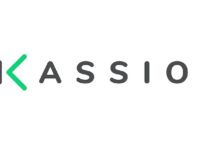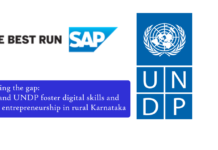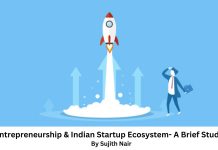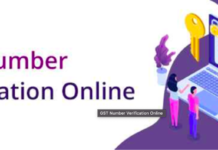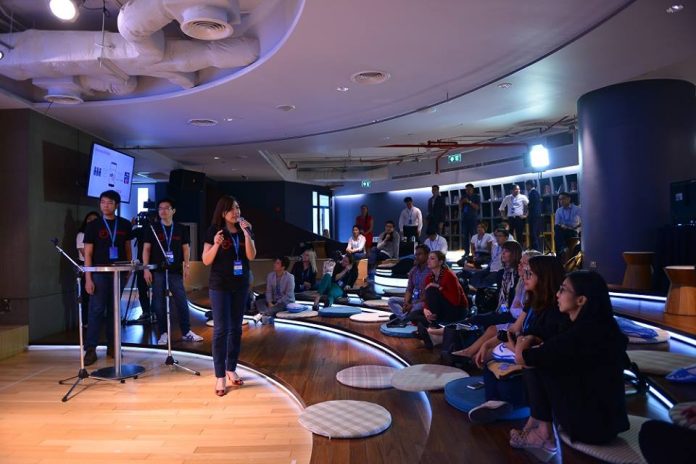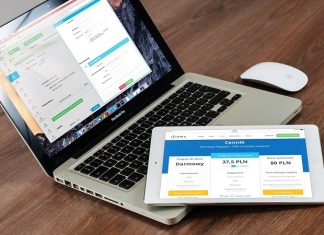With the number of industrial robots deployed worldwide to increase to around 2.6M units by 2019 and automation becoming increasingly important across industries, robotics would be a priority focus for businesses in 2017
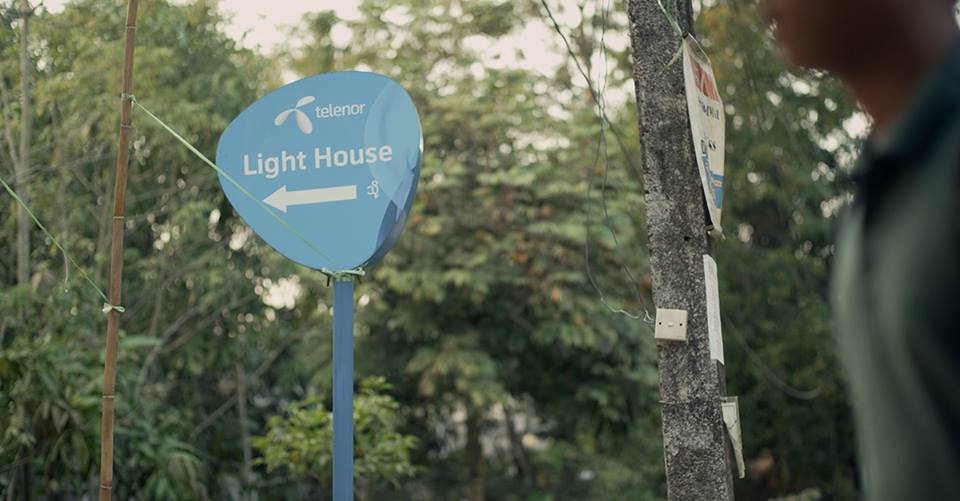 Last week, Asian telecom major Telenor Group surveyed technology buffs to better understand key startup trends for 2017 and the challenges and views of entrepreneurs in Asia.
Last week, Asian telecom major Telenor Group surveyed technology buffs to better understand key startup trends for 2017 and the challenges and views of entrepreneurs in Asia.
The survey was conducted over Facebook and LinkedIn with 215 respondents aged 15 to over 55 years old from Bangladesh, India, Malaysia, Myanmar, Pakistan, Singapore, Thailand and other Asian countries.
Here are the highlights of the survey:
Robotics to take centre-stage in 2017
Respondents were asked to share their views on the development of the 2017 Asia startup landscape and which sectors would be the most ready for disruption in 2017. Nearly half of all respondents chose robotics as the sector most ready for disruption in 2017.
With the number of industrial robots deployed worldwide to increase to around 2.6 million units by 2019 and automation becoming increasingly important across industries, robotics would indeed be a priority focus for businesses in 2017.
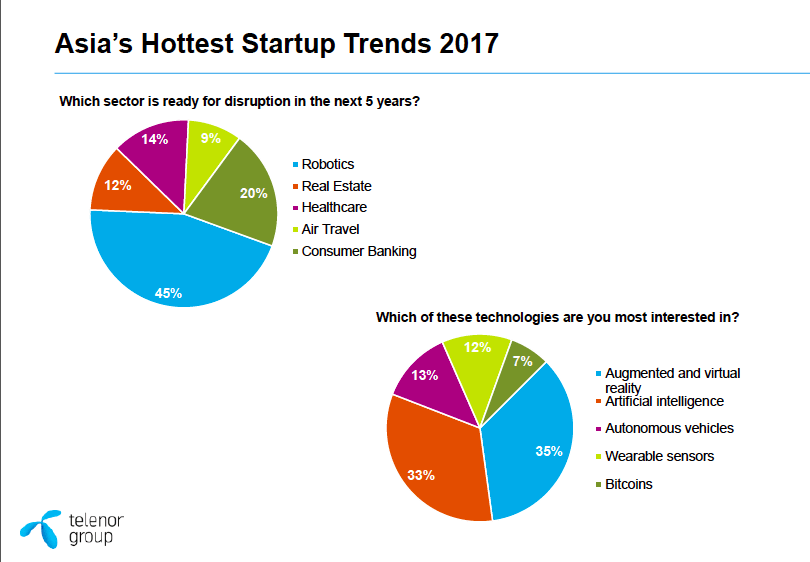 A distant second, 20 per cent of respondents chose consumer banking, 14 per cent believe that healthcare will experience the most disruption in 2017, 12 per cent see real estate as ripe for disruption, while 9 per cent predict that the air travel industry will experience disruption in 2017.
A distant second, 20 per cent of respondents chose consumer banking, 14 per cent believe that healthcare will experience the most disruption in 2017, 12 per cent see real estate as ripe for disruption, while 9 per cent predict that the air travel industry will experience disruption in 2017.
Will 2017 be the year of the self-driving car?
On the technology front, autonomous vehicles were crowned as the most disruptive technology of 2016 by about 40 per cent of respondents, with nearly the same amount (37 per cent) picking it as 2017’s most likely disruptive tech trend. With Asia leading the world in the race towards fully autonomous vehicles by setting milestones like the launch of the world’s first self-driving taxis in Singapore this August, 2017 might just be the year we see self-driving cars becoming the norm.
Understanding how Asian entrepreneurs think
To gauge the interests and personalities of the survey respondents, each person was assigned the type of startup they were most likely to create in 2017, based on pattern of their responses. Thirty-eight per cent of respondents were found to be the most likely to create an IoT startup in 2017, significantly outnumbering the number who would establish medtech startups (22 per cent), on-demand startups (14 per cent), enterprise startups (11 per cent) and fintech startups (10 per cent).
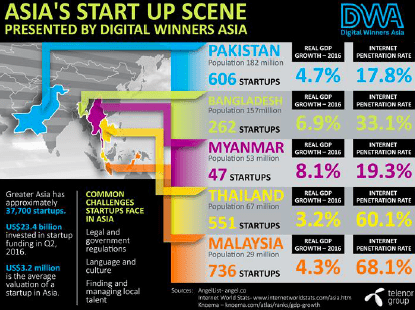 With a potential market of 34 billion devices expected to be connected to the internet by 2020, and nearly $6 trillion to be spent over the next five years, it appears Asia’s entrepreneurs are well aware of the potential opportunities offered by the Internet-of-Things.
With a potential market of 34 billion devices expected to be connected to the internet by 2020, and nearly $6 trillion to be spent over the next five years, it appears Asia’s entrepreneurs are well aware of the potential opportunities offered by the Internet-of-Things.
In addition to these 2017 startup trend insights, the survey findings also hint at what Asian entrepreneurs think it takes to succeed in the tough startup world. More than a third of respondents (36 per cent) believe that cybersecurity and data privacy is their number one priority, and keeping their customers’ data safe and secure is the biggest challenge facing Asian startups.
One in four also admitted that the lack of business management skills and experience is another major obstacle, and having access to expert guidance would be an important growth factor. Another 16 per cent say they are hampered by public policy frameworks and environments that are not conducive to startups, while 14 per cent say that sustained funding across all stages of startup development would be important.
Fewer than one in 10 were seen as were concerned with the challenge of expanding into other markets in the region.
The survey also found that business growth and profit are not the only primary motivators, with 29.3 per cent of respondents stating that helping others gives them a sense of worth and purpose. From a personal perspective, 35 per cent said that they are most interested in augmented and virtual reality, followed closely by artificial intelligence (33 per cent).














